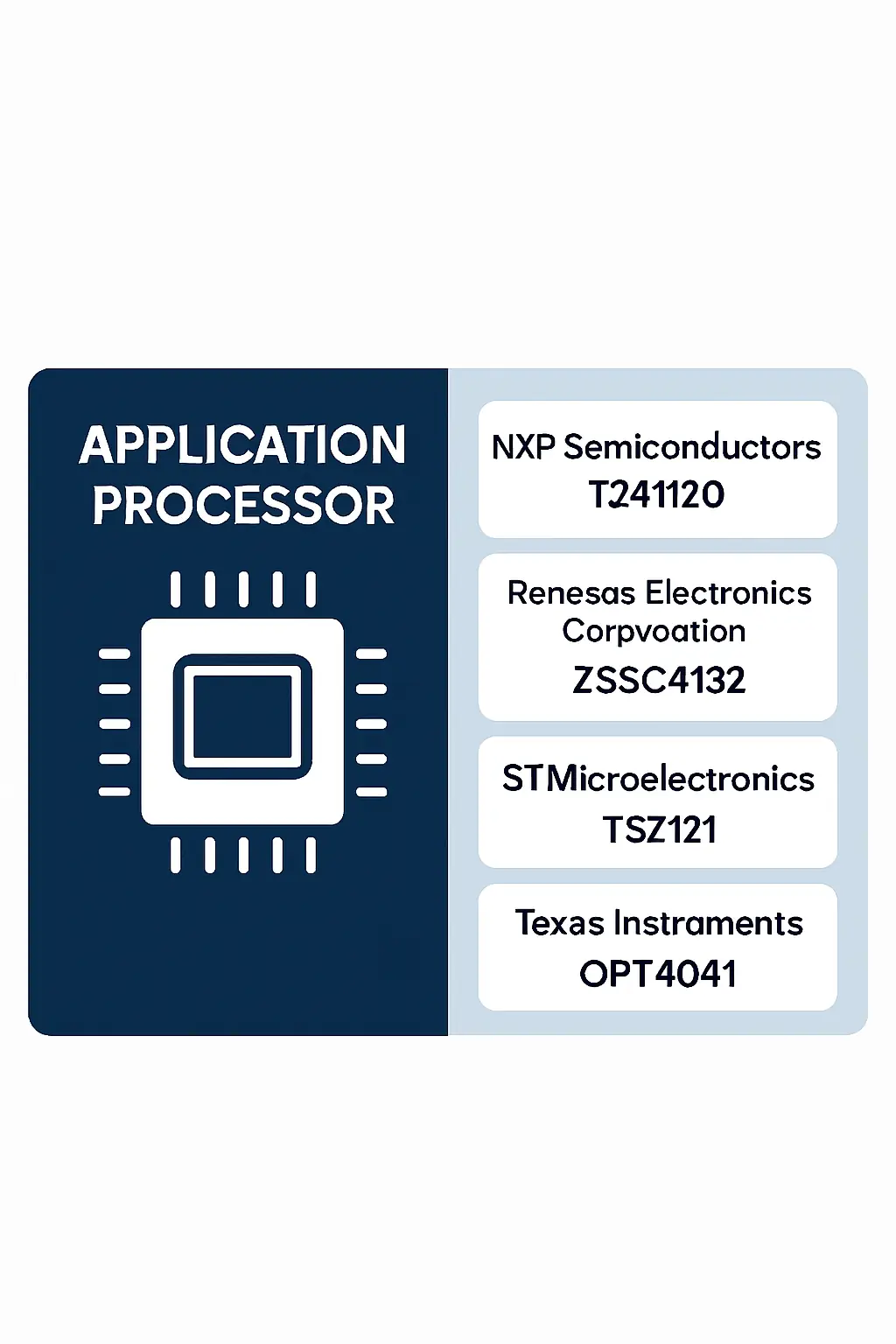Application Processor
The Telematics Control Unit (TCU) is a critical component in modern automotive electronics, serving as the central hub for vehicle connectivity and communication. It enables seamless interaction between the vehicle and external networks, supporting features such as real-time navigation, vehicle diagnostics, emergency assistance, and over-the-air software updates. The TCU integrates with various vehicle systems, including the infotainment, driver assistance, and powertrain modules, to provide a unified and intelligent driving experience.
Within the Application Processor of the TCU, advanced computing capabilities are leveraged to process large volumes of data from sensors, cameras, and other connected devices. This processor supports complex functions like voice recognition, augmented reality navigation, and cloud-based services, enhancing both convenience and safety for drivers and passengers.
The TCU plays a vital role in Connectivity & Telematics, enabling vehicles to communicate with each other (V2V), infrastructure (V2I), and the cloud (V2C). This connectivity supports smart mobility solutions, predictive maintenance, and fleet management systems. It also enhances security by allowing remote monitoring, theft prevention, and emergency response coordination.
In the broader context of Automotive Electronics, the TCU represents a key advancement toward fully connected and autonomous vehicles. Its integration with application processors ensures efficient data processing, low latency, and high reliability, making it essential for next-generation automotive systems. Whether for consumer vehicles or commercial fleets, the TCU and its application processor are shaping the future of smart transportation.
Details
Application Processor

Related Parts
| Series Name | Description | Manufacturer Name | Attribute Description |
|---|---|---|---|
| NXP Semiconductors | 5V CAN transceiver, 16-pin SO, -40°C to +125°C, high-speed up to 1 Mbps, low-power standby mode, integrated VIO level shift, fault-protected, ISO 11898-2 compliant. | ||
| NXP Semiconductors | Dual-core ARM Cortex-A72, 1GB DDR4, 800MHz audio DSP, integrated PMIC, 2.5D GPU, 40nm process, -40°C to 125°C junction temperature, 689-pin FBGA package, supports automotive and industrial applications. | ||
| Renesas Electronics Corporation | 16-bit ADC, 0.1% sensor accuracy, 3.0-5.5V supply, integrated signal conditioning, SPI/I²C interface, -40°C to +125°C operating temperature, supports resistive sensors. | ||
| STMicroelectronics | Rail-to-rail input/output, 1.8V to 5.5V supply, 850µA quiescent current, 1MHz gain bandwidth, 2.3V/µs slew rate, available in SC70 and SOT23 packages. | ||
| Texas Instruments | 18-bit, 4-channel digital ambient light sensor with I2C interface, 0.001 to 60,000 lux measurement range, high resolution, low power consumption, integrated optical filter and photodiode. | ||
| Texas Instruments | 36V, 2.5A, adjustable current limit, thermal shutdown, reverse current protection, 8-pin SOIC, for power distribution and load switching applications. | ||
| Texas Instruments | Dual-channel LED driver, 4.5V to 65V input, up to 150mA per channel, PWM dimming, integrated boost converter, analog/digital current regulation, fault protection, AEC-Q100 qualified. | ||
| Texas Instruments | 3-channel AFE for precision sensing; 24-bit delta-sigma ADC, 1.8V to 3.6V supply, low noise, integrated PGA, SPI interface, up to 4.8kSPS per channel, ideal for weigh scales and industrial sensing. | ||
| Texas Instruments | Input voltage: 2.7V to 5.5V; Output voltage: up to 14V; Switching frequency: 1.2MHz; Max output current: 4A; Efficiency up to 98%; Integrated FETs; Adjustable soft-start; Overvoltage and thermal protection. | ||
| Texas Instruments | ARM Cortex-A8 up to 800MHz, 32KB L1/256KB L2 cache, 2x PRU, 10/100 Ethernet, USB 2.0, LCD, CAN, SPI, I2C, UART, 12-bit ADC, -40°C to 105°C junction temp, 365-pin BGA package. |








.png?x-oss-process=image/format,webp/resize,h_32)










